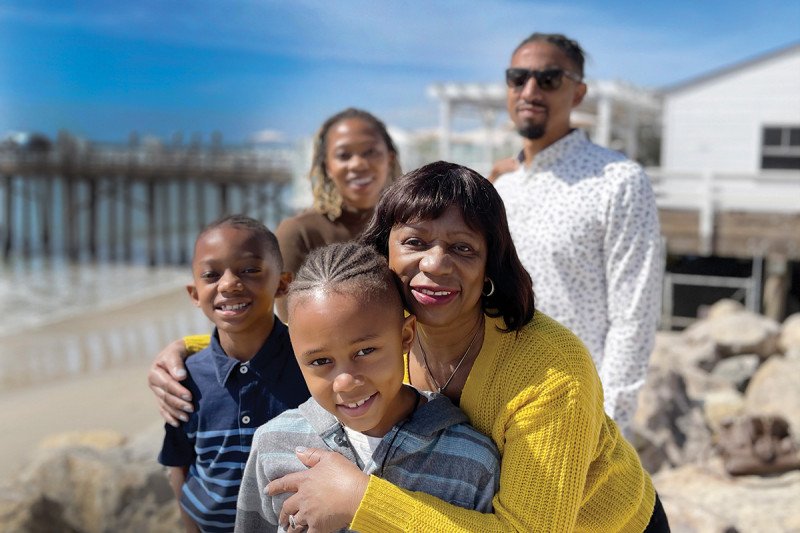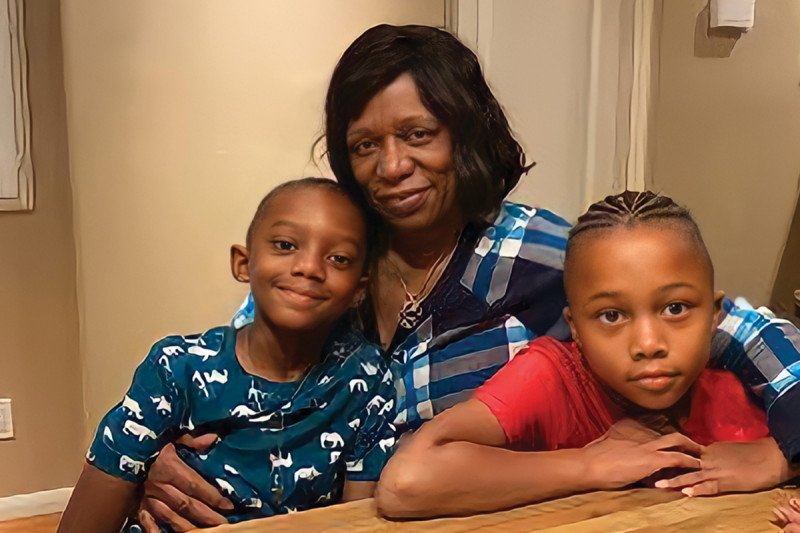Always by Your Side: How MSK Helps People Facing Metastatic Breast Cancer

For Reilly Starr, the relationships inside her support group are nearly impossible to describe — or for people outside to comprehend. “It’s hard to say that these people are just friends,” she says. “The relationships are so deep. They are really like another treatment for your cancer.”
Reilly is talking about the Metastatic Breast Cancer Support Group at Memorial Sloan Kettering. She joined after coming to MSK in 2019 seeking treatment for stage IV breast cancer that was diagnosed when she was 40 years old.
A Safe Place
Every other week, she joins a group of around eight to 12 people who are also facing metastatic breast cancer. Many have young children, like Reilly, who has a 3-year old. In this group, everything is on the table, says Reilly. “This is a safe place to cry and to share things your family and friends don’t understand or can’t handle. It’s okay to be raw.”
The group is one of two at MSK. Reilly’s group focuses on the needs of younger people, who often are in the middle of careers and raising a family. The other group is geared toward people facing metastatic breast cancer at a later stage in life.

Roz Kleban, a senior manager in the Department of Social Work and a 30-year veteran at MSK, helps lead both groups along with social worker Susan Glaser. Ms. Kleban explains, “Some people with metastatic breast cancer are afraid of these groups because you might witness someone you get close to who is dying.” She continues, “But the people who participate see that as part of it. They think, ‘I need to be there for you because I know you’ll be there for me.’”
Turning Down the Radio
According to the American Cancer Society, more than 150,000 survivors of breast cancer are living with metastatic disease, which is far and away the most lethal form of breast cancer.
Still, says Ms. Kleban, until 15 or 20 years ago, metastatic breast cancer was “almost never mentioned, and a huge population of people was mostly ignored.” This distressed some patients with metastatic breast cancer at MSK, who started a group that raised awareness. “For many years,” says Ms. KIeban, “MSK was the only facility that had support groups for people with metastatic breast cancer.”
Today, one of the big aims of these MSK support groups is what Ms. Kleban calls “turning down the radio.” She explains that for people with metastatic breast cancer, “there’s a radio on in your head, 24/7, banging at you about the illness, the treatments.”
She tells patients, “It’s the doctor’s job to keep the illness at bay. But it’s your job to keep that radio low. The volume is always on, and sometimes it’s screaming, like when you’re waiting for the results of a scan.” But, she stresses, “it’s within your power to try to keep it as low as possible to live as well as possible.”
A Godsend
Ilene Thompson was looking to lower the volume when she came to MSK in 2018 after her breast cancer recurred and was diagnosed at stage IV.
After a career in healthcare, she recognized that she could use help, beyond her two grown daughters and a “supportive group of friends in Brooklyn.” She explains, “I knew the group members would understand my issues. Sometimes family and friends just can’t, and I have to explain the same thing over and over. That can be frustrating and tiring.”
In the support group, she says, “we bounce off each other, and find out about new treatments and little home remedies to make yourself more comfortable.” There are also subgroups, including a writing group and “one coming together that will do meditation — these really help on a daily basis.”
Just as important is the emotional support. Ilene explains, “We have each other’s phone numbers and emails so we can just call if we want between meetings.” Before COVID-19, members also visited those who had taken a turn for the worse. However, she stresses that joy also plays a part in the group. “We know many of us are living day to day, so we try to enjoy it. We encourage laughter and fun.”
She concludes, “I’m really happy I sought out this group. I know emotionally this has been a godsend for me.” That’s a message echoed by Reilly, who says, “I’d recommend this one thousand percent. The group is a necessity for me.”
Ms. Kleban says these women help each other stay positive. While stopping cancer’s spread does not depend on keeping a positive attitude, having hope helps patients find joy and human connection every day.




